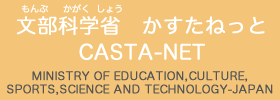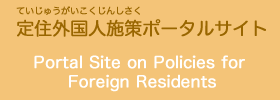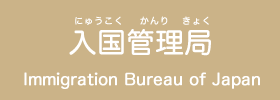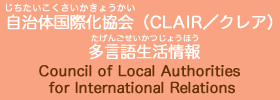
- Home >
- Information About Elementary and Junior High School Student Life >
- Frequently Asked Questions


- Q1:What kind of rules do schools normally have?
- It depends on the school. Usually, junior high schools will have similar rules concerning dress code, acceptable hairstyles, and what items students are allowed or not allowed to bring on campus.
- Q2:Are translated report cards/grade reports available? If I can’t understand the correspondence that I received from the school, is it possible to get the documents translated?
- If you would like more information about translated grade reports, please refer to the MEXT website (Castanet). If you would like to receive translated copies of all correspondence from the school in question, directly ask the school about providing such services. If you have difficulty asking questions in Japanese, use the questions provided on this page in the box below the dotted line. This is your reference card.

Reference Card (Please show this card to the school teachers/faculty)
- Q3:Can you give me more information regarding how testing and examinations are conducted in Japanese schools?
- In junior high schools, periodic tests are given throughout the school year. Halfway through the semester, midterm exams are given, and at the end of the semester, final exams are held. There are also standardized nation-wide examinations, such as the “Toutatsudo” and the “Gakuryoku” exams, which must be taken by all students in Japan.
- Q4:What kind of things does the school student council do?
- The student council may be in charge of various school events, like planning meetings or holding school discussions, etc.
- Q5:Are PTA meetings held often?
- There is a general PTA meeting held once a year, which all members attend. This meeting is called the “PTA Soukai.” Other smaller meetings are also held throughout the school year. Within the PTA, there is a board of members that is responsible for working with teachers and faculty for the sake of the students. If you become a PTA board member, you will be expected to regularly participate in PTA/school meetings.
- Q6: What is a “Chousasho?" (student grade report)
- A “Chousasho” is a student report card/grade report. Teachers use it to keep track of students’ overall progress in various areas (attendance, student behavior, grades, etc.). It is a very important document. When students apply for admission into high schools, high schools use the entrance examination results and the grade report to determine whether or not students will be accepted.
- Q7:In junior high school, are students required to join clubs?
- Participation in club activities is optional. However, if a student decides to join a club, then he or she is expected to commit him or herself to the club for the full 3 years of junior high school. If a student actively participates in club activities and performs at a high level, then this can positively influence the student’s chances of entering into a high-level senior high school.
- Q8:When teachers visit students and families at their homes, how long do these visitations last for?
- Usually, home visitations last for 15 minutes. Teachers will set up a time with students and their families that is convenient for both parties. Because the schedule for such meetings is set in advance, please make sure that you and your family are at home at the scheduled time.
- Q9:In what situations can I expect translation/interpretation to be provided?
- An interpreter will be provided during home visitations and other meetings. Please ask the school more than one month in advance, if you need an interpreter for such meetings.
- Q10:How will I pay for the school trip? At what other times will I be required to pay a fee?
- From the time when your child first enters school, you will gradually pay for the school trip in installments on a monthly basis. Payments will be made directly to the school. If your child attends a public school, you will be required to pay for any study materials. Other items you will cover the costs for include student uniforms, PE uniforms, lunch, field trips, club activities, etc. If your child attends a private school, then you will also need to pay for any tuition or admission fees. The costs you will be expected to pay will vary depending on the school. Detailed information on the supplies required is provided in the ‘School Study Materials/Supplies’ section of this packet. Please refer to the pictures provided in that section for more information on student supplies.
- Q11:My child does not speak Japanese. Will Japanese language courses be provided for him/her?
- Japanese language courses are provided for students who do not understand Japanese. If a school does not have a Japanese teacher available, then a teacher will be provided from off-campus. Usually, Japanese lessons will be given 1 to 3 times per week. Each lesson will last 45 or 50 minutes. If your child wishes to learn more Japanese, or finds Japanese to be too difficult, then please consult with the school teachers about offering such courses. In addition, some schools may have a teacher or faculty member available to help students during their individual study time. If the school in question provides these services, the teacher/faculty member will work side by side with the student to help with general studies, homework, etc.
- Q12:My child is having a difficult time adjusting in school. He/she cries and/or panics during school/class time. Is counseling available in this kind of situation?
- All schools have a counselor present on campus. If your child experiences any difficulty, they can consult with the counselor at any time.
- Q13:What is “Tokubetsu Shien Gakkou?” (School for Students of Special Needs)
- Schooling is provided for children with any physical or mental disabilities. For more detailed information, please refer to the links below.
- Q14:In addition to the schools listed above, what other kinds of school are there?
- In Yamanashi prefecture, there are 3 private elementary schools, 5 private junior high schools, 1 national elementary school, 1 national junior high school, and 1 municipal integrated junior-senior high school. (This packet covers information from Jan. 2013) Please refer to the links below.
盲学校 (もうがっこう) Mougakkou(School for children with severe visual impairments or blindness)
ろう学校 (ろうがっこう) Rougakko (School for the hearing impaired or deaf)
甲府支援学校 (こうふしえんがっこう)
あけぼの支援学校 (あけぼのしえんがっこう)
わかば支援学校 (わかばしえんがっこう)
わかば支援学校 ふじかわ分校(わかばしえんがっこうふじかわぶんこう)
やまびこ支援学校 (やまびこしえんがっこう)
富士見支援学校 (ふじみしえんがっこう)
富士見支援学校旭分校 (ふじみしえんがっこうあさひぶんこう)
ふじざくら支援学校 (ふじざくらしえんがっこう)
かえで支援学校 (かえでしえんがっこう)
ろう学校 (ろうがっこう) Rougakko (School for the hearing impaired or deaf)
甲府支援学校 (こうふしえんがっこう)
あけぼの支援学校 (あけぼのしえんがっこう)
わかば支援学校 (わかばしえんがっこう)
わかば支援学校 ふじかわ分校(わかばしえんがっこうふじかわぶんこう)
やまびこ支援学校 (やまびこしえんがっこう)
富士見支援学校 (ふじみしえんがっこう)
富士見支援学校旭分校 (ふじみしえんがっこうあさひぶんこう)
ふじざくら支援学校 (ふじざくらしえんがっこう)
かえで支援学校 (かえでしえんがっこう)
【Private Elementary Schools】
駿台甲府小学校 (すんだいこうふしょうがっこう)山梨学院大学付属小学校 (やまなしがくいんだいがくふぞくしょうがっこう)
南アルプス子どもの村小学校 (みなみあるぷすこどものむらしょうがっこう)
【Private Junior High Schools】
駿台甲府中学校 (すんだいこうふちゅうがっこう)山梨学院大学付属中学校 (やまなしがくいんだいがくふぞくちゅうがっこう)
山梨英和中学校 (やまなしえいわちゅうがっこう)
富士学苑中学校 (ふじがくえんちゅうがっこう)
南アルプス子どもの村中学校 (みなみあるぷすこどものむらちゅうがっこう)
【National Elementary School】
山梨大学付属小学校 (やまなしだいがくふぞくしょうがっこう)【National Junior High School】
山梨大学付属中学校 (やまなしだいがくふぞくちゅうがっこう)【Municipal Integrated Junior-Senior High School】
山梨県北杜市立甲稜中学校 (やまなしけんほくとしりつこうりょうちゅうがっこう)山梨県北杜市立甲稜高等学校 (やまなしけんほくとしりつこうりょうこうとうがっこう)
→ 2.Information About Elementary and Junior High School Student Life
→ ① Elementary/Junior High School Rules and Student Life
→ ② Club Activities in Junior High School
























